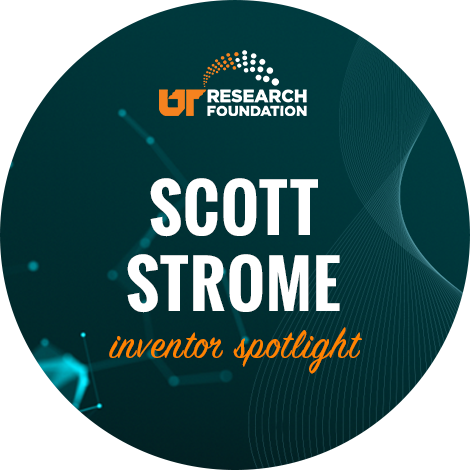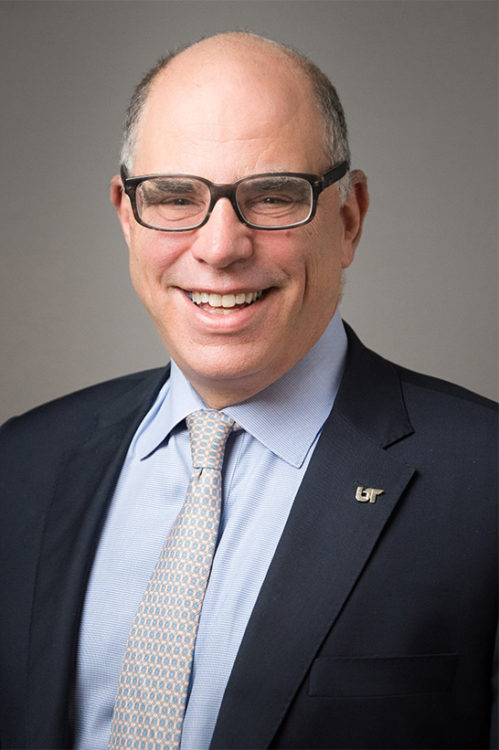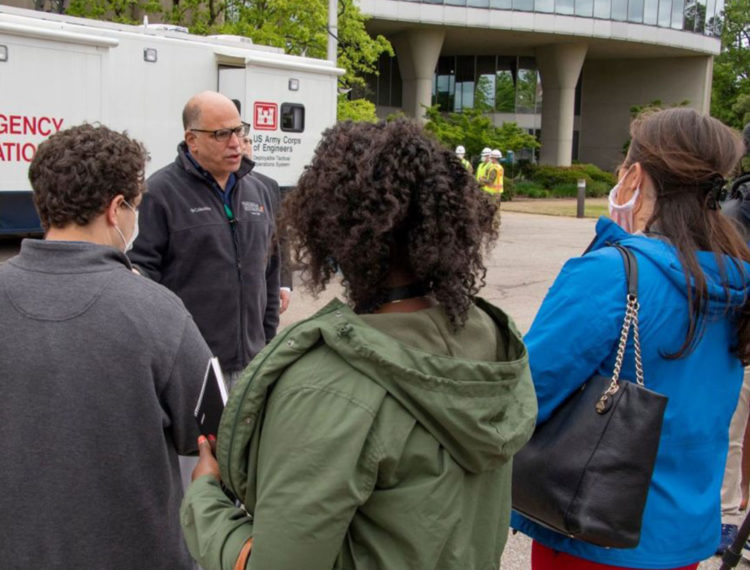 Executive Dean fosters an entrepreneurial culture in UTHSC’s College of Medicine.
Executive Dean fosters an entrepreneurial culture in UTHSC’s College of Medicine.
The University of Tennessee Health Science Center’s (UTHSC) Scott Strome is passionate about entrepreneurship. From providing investigators with unique access to funding opportunities to bringing high-quality jobs to the community, he believes entrepreneurial efforts add considerable value to universities.
Scott serves as the Robert Kaplan Executive Dean of the College of Medicine and Vice Chancellor for Health Affairs at UTHSC, with a research focus in translational immunology. Prior to his 2018 appointment, he was Professor and Chairman of the Department of Otorhinolaryngology-Head & Neck Surgery at the University of Maryland School of Medicine, with a secondary appointment in Immunology and Microbiology.

Since arriving at UTHSC, Scott has worked diligently to foster a pro-entrepreneurial environment. Ultimately, he seeks to provide opportunities for burgeoning entrepreneurs and innovators to understand how to bridge the gap in taking initial discoveries and innovations from lab to market.
“Essentially, what does it take to have an idea, and how do you move that idea forward from concept into the clinic or a new company or licensing deal?” he asked.
During the pandemic, Scott is overseeing the efforts of some researchers in the fight against COVID-19. From developing new COVID-19 diagnostic platforms to creating a better ELISA antibody test, Scott mentioned many innovative projects in progress at the university.
“We hope to start companies around some of these projects or license the technologies,” he said. “For me, the most important thing is: How do you get technology to patients quickly? How can we create a sustainable way to do that? The most important thing is to help people.”
Scott doesn’t just support the idea of entrepreneurship; he has built a long career dedicated to innovation in drug discovery. In 2007, Scott helped found Gliknik, a biopharmaceutical company working to ease human suffering by creating new therapies for people living with cancer and immune system deficiencies. The company is currently working on a number of drugs for the treatment of inflammatory and autoimmune disorders.
He previously served as an associate professor at the Mayo Clinic College of Medicine where he worked with Lieping Chen, who is credited with identifying the molecule B7-H1, now known as PD-L1. Scott, Lieping, and other key researchers defined the translational potential of manipulating PDL-1: PD-1 interactions for the treatment of cancer.
“This discovery was pretty exciting because it changed the way we treat cancer and has helped a lot of people,” Scott comments.


To promote a long-lasting entrepreneurial community, Scott works closely with Richard Magid, vice president of UTRF at UTHSC. Scott comments on the value that UTRF adds to the campus and often advocates for the services they provide.
“The university is fortunate to have both Richard and UTRF as resources for burgeoning innovators and entrepreneurs,” Scott said. “So, as we work toward creating an entrepreneurial culture, we need to celebrate what is a really great thing, and figure out how to leverage our partnerships for greater reach into the community.”
“Scott is a true champion for entrepreneurship at UTHSC. He is using both his leadership position and his own research efforts to drive commercialization,” Richard said. “UTRF is honored to partner with Scott and other innovators who pave the way for future entrepreneurs.”